
Transcription
Anarchist Communism
By Peter Kropotkin
(London, UK: Penguin Books, 2020)
Reviewed by Jennifer Rose
Peter Kropotkin (1842-1921) is considered one of the fathers of anarchism, along with other European revolutionary theorists of the 19th century, like fellow Russian, Mikhail Bakurin; and Pierre-Joseph Prodon. Anarchist Communism, first published in book form in French as "La Conquete du Pain 1892", and in English as "the Conquert of Bread - 1906, was first published in Penguin Classics 2020 (Using the Revised Edition 1913 text).
"Anarochist Communism" sets forth the insurrectionary anarchist writings of Kropotkin beginning in "Chapter 1: Our Riches" where he succinctly states:
"There is not even a thought or an invention, which is not common property, born of the past and the present." (p. 8).
In Chapter 2: "Well-Being for All" exhorts "Let us have the courage to recongnize"
Page 2 - Book Review - Anarchist Communism
That well-being for all, hence forward possible, must be realized: (p. 32)
In Chapter 3 "Anarchist Communism", he goes on to proclaim the theory, which is summed up in this nutshell:
"It is anarchist communism, communism without government - the communism of the free. It is the synthesis of the two ideals pursued by humanity throughout the ages - economic and political liberty" (pp. 43-44).
"We can already catch a glimpse of a world in which the bonds which bind the individual are no longer laws, but social habits - the result of the need felt by each one of us to seek the support, the cooperation, the sympathy of his neighbors. (p. 46).
In Chapter 4 "Expropriation", Knopotkin notes: "Everywhere you will find that the wealth of the wealthy springs from the poverty of the poor: He then explains what is meant by
Page 3 - Book Review - Anarchist Communism
expropriation and revolution:
"... this is what the people mean by revolution. As soon as they have made a clean s-deep of the government, they will seek first of all to ensure to themselves decent dwellings and sufficient food and clothes - free of capitalist rent." (p. 72)
In Chapter 5 "Food", Kropttein explains the failure of past revolutions to prioritize the needs of the people will be to provide bread for all!"
The book ends with a bibliography of a hundred different titles of books by the great thinkers, pioneers, readers, and visionaries whose ideas have inspired debate, dissent, war and revolution! A
Other posts by this author
|
2022 aug 16

|
2022 aug 5
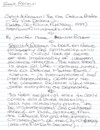
|
2022 aug 1
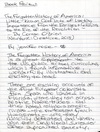
|
2022 mar 3
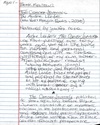
|
2021 dec 1

|
2021 aug 8
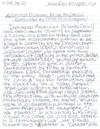
|
More... |
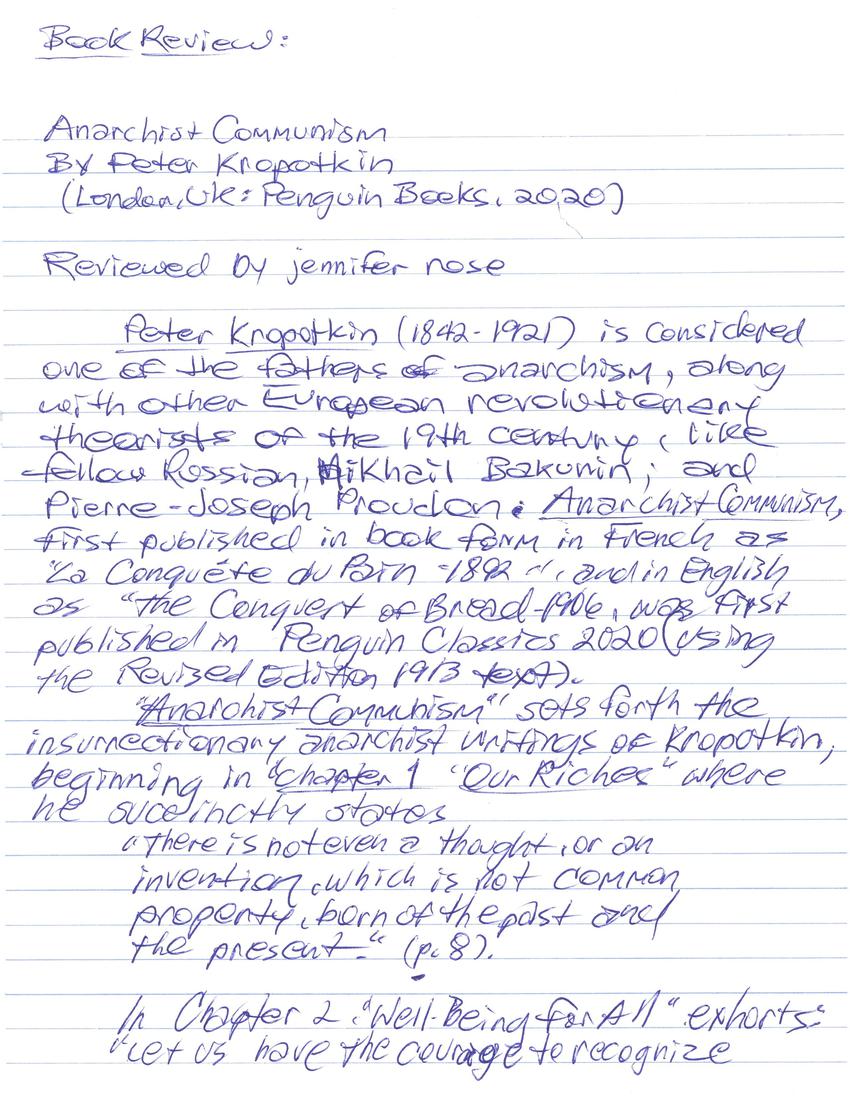
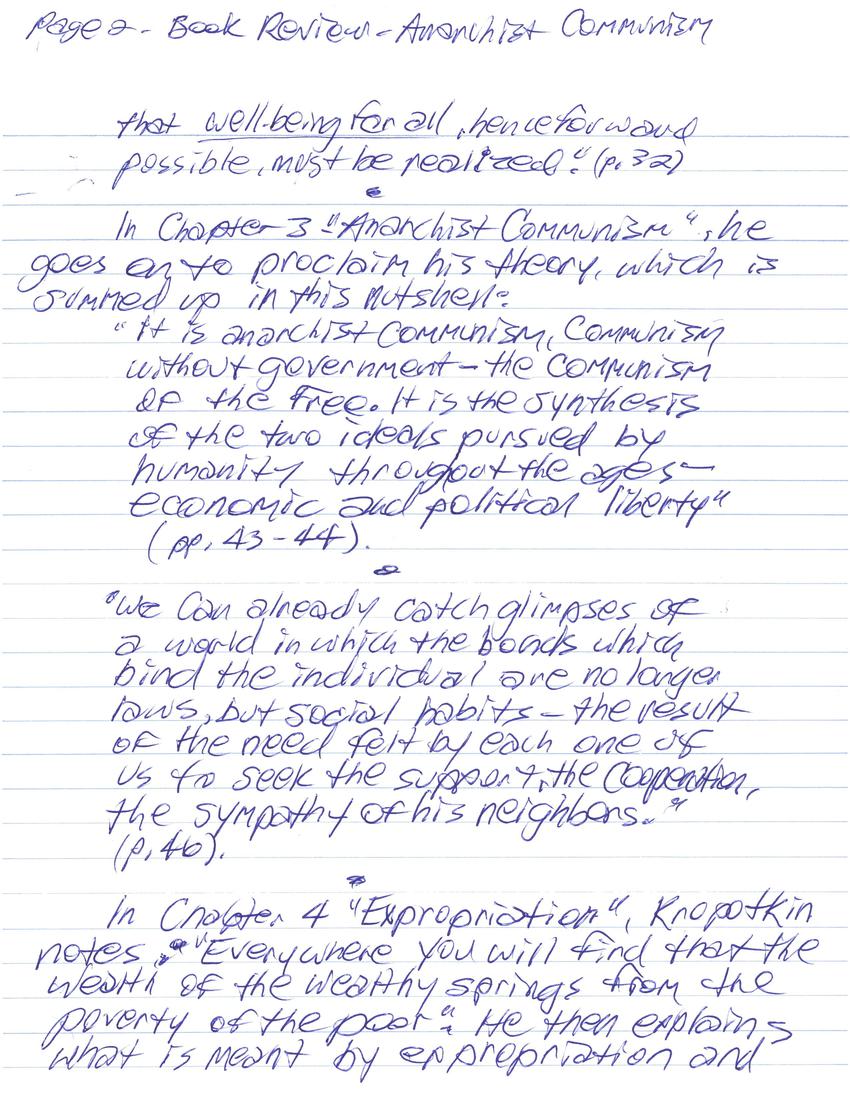
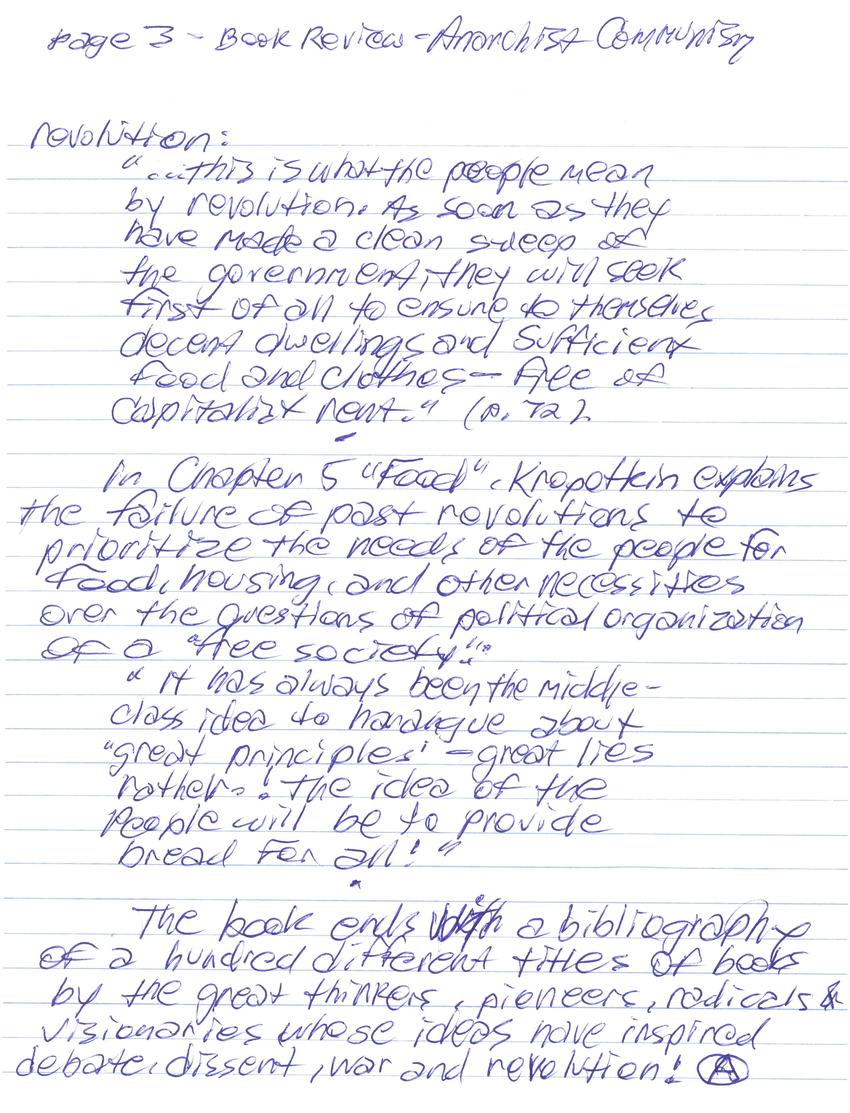

Replies